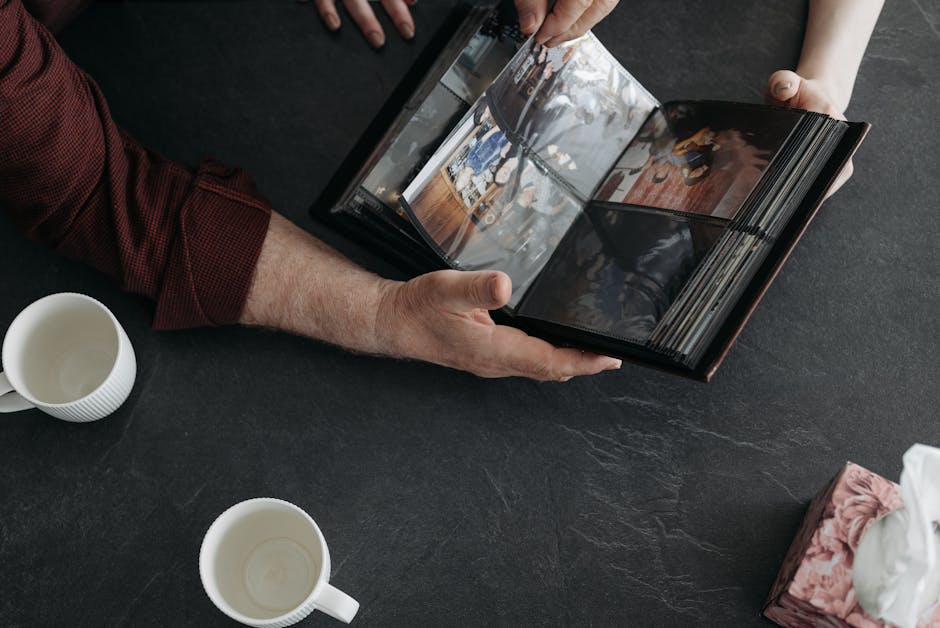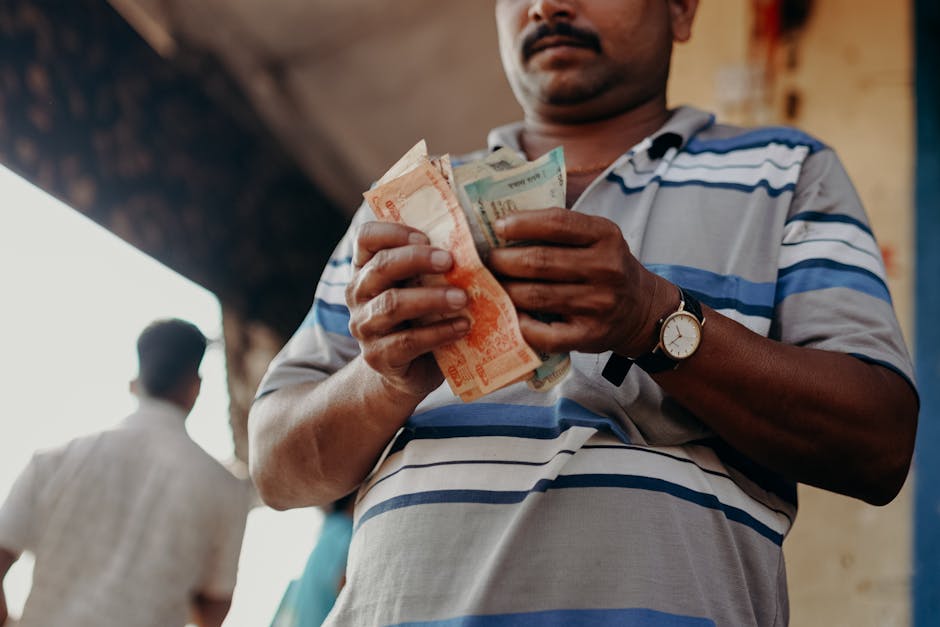Traveling Without a Wallet: Experience the World through Barter
Imagine embarking on a grand adventure, discovering vibrant cultures and breathtaking landscapes, all while spending next to nothing. The concept might seem far-fetched, yet it's entirely achievable through one of the oldest forms of trade: bartering. In this article, we'll explore how travelers can embrace alternative economic systems—such as barter systems and local exchanges—to minimize costs while maximizing their cultural immersion. From exchanging skills and crafts to trading volunteer services for accommodation and meals, join us as we delve into practical examples and inspiring stories that empower you to travel affordably and authentically.
The Allure of Traveling without Money
The traditional notion of travel often involves a hefty wallet filled with various currencies. However, the concept of traveling without a wallet transforms the entire experience into something far more enriching and unique. Picture an adventure where your skills, knowledge, or labor are valuable currency, allowing you to engage more deeply with local communities. When you barter, you don’t just save money—you create meaningful connections and gain insights that money simply can’t buy.
In a world increasingly interconnected and technologically driven, alternative economic systems are flourishing worldwide. While conventional cash payments remain the norm, there exists a fascinating network of local exchanges and bartering communities thriving right alongside. Becoming part of this system allows you to experience the world on a more personal and immersive level.
Bartering as a Travel Trend

The rise of the sharing economy has paved the way for innovative travel solutions. From ride-sharing to home exchanges, travelers are redefining how they experience new destinations. Bartering stands out among these practices, promoting local connections and sustainable tourism. According to a recent report from the Harvard Business Review, the barter economic model is evolving, proving beneficial for both travelers and local communities.
1. Skill Swaps: Trading Talents for Experiences

One of the most popular methods of bartering among travelers is participating in skill swaps. This involves exchanging your skills with locals in exchange for food, accommodation, or services. Do you play the guitar? Maybe you can offer music lessons to a local for a week’s stay at their home. Are you a great cook? You could share culinary techniques with a local chef in exchange for meals.
For example, in Thailand, a traveler once barter-hauled language lessons for a week with an aspiring English teacher who needed to practice their conversational skills. This not only saved the traveler money but also enriched their understanding of Thai culture. Communities often appreciate visitors willing to share their knowledge, making skill swaps a win-win scenario.
For more insights into the intricate world of exchanging skills for travel, check out our post about travel swap programs.
2. Volunteering for Stay: Home and Hearts Open

When you think of volunteer opportunities while traveling, you might visualize teaching English in faraway lands or assisting at a wildlife sanctuary. However, many places offer housing and food in return for your help. Organizations like Workaway and WWOOF (World Wide Opportunities on Organic Farms) allow travelers to trade their labor for accommodations.
Imagine you land in Italy and volunteer a few hours on a vineyard—during the grape harvest season, no less! In exchange for your efforts, you gain comfortable lodging, meals, and an intimate connection to the culture. Through these experiences, you not only lower your travel costs but also create lasting memories and friendships.
Want to find out more about volunteer travel opportunities that fund your adventures? See our blog on affordable journeys for a great cause.
3. From Crafts to Cashless Travel: Creating Handmade Goods

Here's an idea: if you're a talented craftsman, why not use your skills to create goods that you can barter with locals? Travelers who knit, carve, or create jewelry often have remarkable success in barter systems. During a trip to Morocco, one tourist made stunning bracelets and traded them for meals at local eateries, forging friendships and gaining insight into the traditions of the community.
This approach not only minimizes costs but also allows you to contribute to local economies while sharing your artistic flair. In addition, you might just find that handmade items become cherished souvenirs of your journey.
4. Embrace the Power of Local Exchanges

Many cities and regions worldwide have created local exchange trading systems (LETS) that allow residents to trade goods and services without using money. These systems often rely on community involvement, wherein you earn credits for services provided.
For instance, in parts of New Zealand, travelers can participate in local farm exchanges, helping with tasks in exchange for accommodation and meals. The connections formed during these exchanges often lead travelers to discover hidden gems not found in typical tourist guides.
5. Culinary Connections: Food for Travel

Food plays a crucial role in any cultural exchange. In many locales, exchanging cooking lessons or food items is both practical and delightful. Imagine showing a local family how to prepare a dish from your home country in exchange for cooking classes on the local cuisine! Street food markets worldwide are often buzzing with exchanges—sharing meals can foster connections that lead to unforgettable experiences.
In Vietnam, a traveler inspired by the culinary landscape offered to help a street vendor create a fusion dish combining local ingredients and foreign recipes. In return, they learned the exquisite flavors of phở and feasted on the delicacies with their new friends.
For more culinary adventures that can save you money while diving into local flavors, don’t miss out on our guide to street food experiences.
Trusting the Process: Building Communication and Relationships

Bartering isn’t merely a transaction; it’s an exchange of culture, knowledge, and trust. Building relationships is instrumental in successfully navigating this journey. Here are a few tips to enhance your communication and trustworthiness:
-
Clear Expectations: When entering a barter arrangement, be clear about what both parties can offer. Misunderstandings can lead to disappointment.
-
Respect Local Customs: Every culture has its norms; understanding and respecting them strengthens relationships.
-
Building Rapport: Create a connection by understanding local customs and language, however limited; even a few polite phrases can make a difference.
Through these relationships, you can unlock not just valuable travel opportunities but also forge friendships that last a lifetime.
Embracing Sustainability: The Ethical Nature of Bartering

Traveling without a wallet fosters sustainability as it emphasizes local economies and reduces one’s carbon footprint associated with tourism. Instead of contributing to large corporate chains, bartering shifts the focus toward sharing, cooperation, and connection.
Moreover, as travelers engage in these systems, they often become ambassadors for the local culture and environmental preservation. Practicing sustainable travel through bartering not only benefits your wallet but also the communities you visit, enriching your travel experience.
Personal Stories of Success: The Barter Advantage

Across the globe, travelers have harnessed bartering in various inventive ways. Take Hannah, a 27-year-old solo traveler, who successfully navigated her way through Europe without a cent. Instead of hotels or hostels, she offered photography sessions to families in exchange for housing. She documented her adventures not only through images but in her blog, sharing her experiences and inspiring others to pursue similar avenues.
Similarly, James and Lily, a couple from Australia, swam against the current of modern tourist traps. They relied on local barter systems, engaging with artisans in Indonesia to trade their yoga lessons for crafts and a roof over their heads. Their experiential learning and cultural immersion led to a more profound connection with the communities they visited, reinforcing the significance of travel beyond mere sightseeing.
Final Thoughts: Traveling Smart, Traveling Sustainably
Traveling without a wallet through barter systems and local exchanges is more than just a strategy for saving money; it's an opportunity for cultural immersion and personal connection. As travelers increasingly seek authentic experiences, bartering provides a refreshing perspective, reshaping our traditional understanding of travel expenses.
Eager to tap into your creative side? Whether through skills, crafts, or simply a willingness to connect with locals, there’s an endless array of ways to embrace this rewarding path.
So step outside the confines of your wallet—open your heart, mind, and creativity. The world is waiting, offering rich experiences that are not defined by your bank balance, but by the connections you cultivate along the way.




